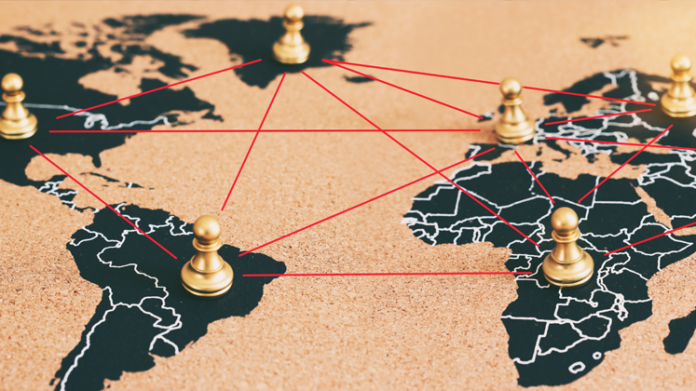Author: Arvind Gupta
Affiliations: Director of Vivekananda International Foundation, Served in the Indian Foreign Service from 1979-2013 which Included Diplomatic Missions in Moscow, London and Ankara
Organization/Publisher: Vivekananda International Foundation
Date/Place: January 1, 2022/New Delhi, India
Type of Literature: Analysis
Word Count: 2094
Link: https://www.vifindia.org/article/2022/january/01/likely-geopolitical-trends-in-2022
Keywords: US, China, Russia, Turbulence, Geopolitics, 2022
Brief:
In the absence of credible mechanisms and harmonized efforts to resolve global crises, the world is likely to remain turbulent in 2022 with sharpening great-power geopolitical rivalry and increasing ideological struggles. As geopolitical rivalry grows, the arms race—particularly space weapon technologies—may deepen. Hybrid wars and cyber-attacks are likely to intensify soon. Ideologically, the West with its vanguard US believes that the rise and spread of authoritarianism is the central challenge to the smooth functioning of global order. Other powers such as Russia, China, Iran, and Turkey, on the other hand, regard US hegemony as the most destabilizing factor in the world today. Global powers’ geopolitical and ideological rivalries will be fought against a backdrop of strained multilateralism, an uncertain economic recovery, a raging pandemic, escalating climate change risks, and energy market instability. The US-China relation is becoming increasingly important in global geopolitics. Chinese leader Xi has increased the Communist Party’s grip on the military and economy, limited democracy and liberty, carried out purges within the party, and positioned China as a significant rival to the US-led global order. The Indo-Pacific is quickly becoming a hotbed of competition. The formation of the Quad of India, the United States, Japan, and Australia, and later the AUKUS (Australia, the United States, and the United Kingdom), has drastically altered the security situation in the region. These two institutions are highly unpopular in China, which will have to react to the new circumstances. It would most likely toughen its attitude and try to enlist the help of regional governments to expand its sphere of influence. The growth of China has increased Japan’s security difficulties. Faced with a hostile China, a belligerent North Korea, and an unyielding Russia, Japan’s security remains reliant on the US. In Japan, there is an increasing desire to improve the country’s military capabilities. The West’s aversion to Russia grew with the latter’s invasion of Ukraine. As a result, Russia is moving closer to China. West Asia has witnessed simultaneous political and economic upheavals for several years. The JCPOA, the Syrian conflict, and the Yemen war are three primary concerns that are anticipated to endure in 2022. Lebanon is in a state of flux. The Abraham Accords are a game-changer as Israel’s connections with the Gulf countries strengthen. Continuing sanctions are wreaking havoc on Iran’s economy. On the other hand, the Iranians are unlikely to make significant concessions on the nuclear issue. To offset Western pressure, Iran aims to expand strategic ties with China and Russia. In Afghanistan, the Taliban is attempting to consolidate its power. Several countries, notably China, Pakistan, Qatar, and Turkey, are assisting in the normalization of Taliban rule, despite the latter’s refusal to change its ways. In the foreseeable future, Pakistan is likely to grow increasingly turbulent as its debt-ridden economy is in serious trouble. The rupee is weak, inflation is in double digits, and Pakistan is in a severe shortage of financial funds. Relations between Imran Khan and the military have deteriorated, and Islamist forces have risen again. India faces the difficult task of maintaining a balance in its connections between the West, Russia, and China. India will have to handle the pandemic, manage the energy shift to green energy, assimilate new technology, modernize its armed forces, and reclaim its economic strength in 2022.
By: Jemal Muhamed, CIGA Research Associate




